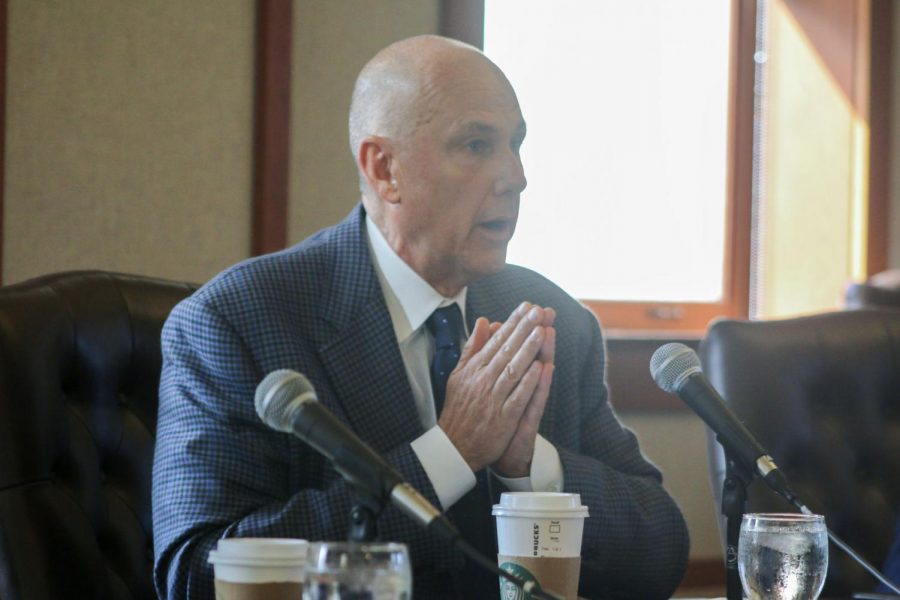Out-of-state students to get in-state tuition
October 26, 2017
DeKALB — The Board of Trustees approved a measure to make tuition for out-of-state students more affordable Thursday.
Out-of-state tuition will now be equal to the tuition paid by in-state students, thus instating a domestic tuition structure. The school’s aim is to make NIU more affordable to students from anywhere in the United States, according to an Oct. 19 press release. The changes will go into effect for the fall 2018 semester.
“The high quality of our faculty and academic programs is well-known beyond the borders of Illinois,” NIU Acting President Lisa Freeman said in the press release. “We want students nationwide to experience our unique brand of hands-on, engaged learning, and we believe elimination of this cost barrier will help us attract more students from across the country.”
The cost of tuition for out-of-state students is currently nearly double the tuition of in-state students. Students from Illinois currently pay an average of $4,732 per semester, while students from outside of Illinois pay an average of $9,465 per semester, according to the Bursar’s Office website.
Prior to approving the domestic tuition structure, NIU had been on par with other state schools; a 12-credit-hour semester at Illinois State University costs in-state students $4,688 and out-of-state students $9,696.
“When you look at other universities in the greater Chicago area, this immediately makes us a far more affordable and accessible alternative,” said Sol Jensen, Enrollment Management, Marketing and Communications vice president, in the press release.
Officials expect the decrease in tuition rates for students from other states to counteract the ongoing issue of young people leaving Illinois. Illinois is one of eight states seeing negative growth and is second only to West Virginia at the speed of its decline, according to a May 23 Chicago Tribune article.
Jensen said he thinks the lower cost will be successful in attracting more students from other states, citing the 42,000 out-of-state students that were already interested in attending NIU even before the drop in tuition. Many interested students reside in Wisconsin, Ohio and Missouri, according to a document outlining NIU’s fall 2017 out-of-state prospects.
“We feel that this is the first initial step to get students more interested in having that follow up conversation,” Jensen said in an interview with the Northern Star.
Officials are still in the preliminary stages of creating a marketing plan and have yet to begin estimating the changes to enrollment that will result from the tuition change. However, this has not stopped NIU representatives from informing out-of-state prospective students about the lowered prices.
“The day after the board passed this, we were actually doing a college fair in Indianapolis,” Jensen said. “A couple days after that, we had a fair in St. Louis, Missouri. We’re actually sending out emails today to thousands of out-of-state students to let them know about this change.”
Despite the expectation of increasing enrollment, there is a possibility the university could lose money because of the drop in out-of-state tuition.
“It’s relatively not a large number of students that we would need to enroll to offset the difference in the tuition change,” Jensen said. “We would certainly like to see an institution of NIU’s reputation expand their arms beyond Illinois.”
About 3 percent of the student body will be affected by the change in the coming fall. However, in dropping the rate of out-of-state tuition, Jensen said the number of students from other states will grow.
“We are still working on the marketing plan to draw more students into the initial pool [of applicants], and then we need to be able to market to them,” Jensen said.
Kameron Deboer, a junior sculpture major from Holland, MI, is happy with the changes to the tuition structure.
“It takes a lot of financial strain off of me and makes it easier to afford grad school eventually,” Deboer said. “So to me, it was a good idea.”














